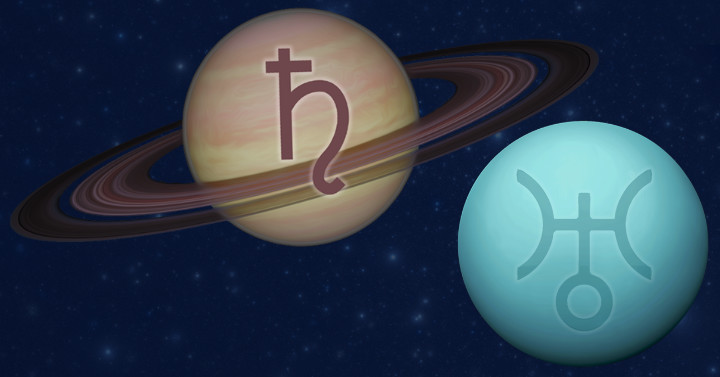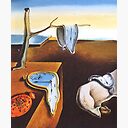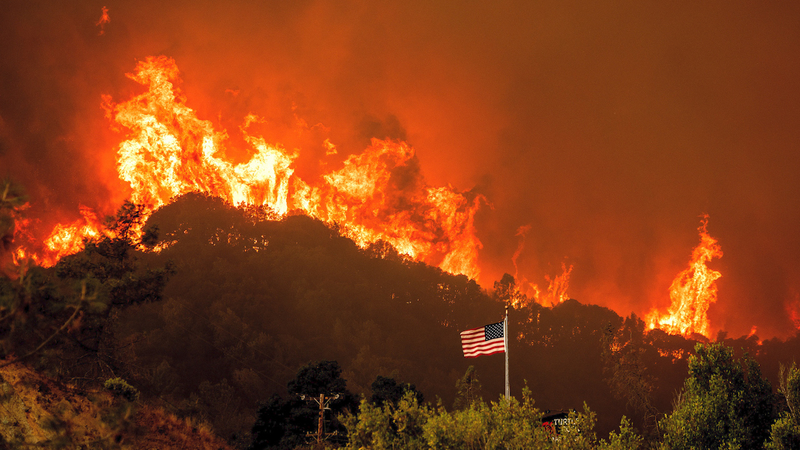 Feeling a tad used up? Working too hard, and too thanklessly? You may be one of the waitresses or teachers who are making economists so nervous right now, by deciding to not return to your pre-pandemic job. Or a worker in any industry who has come to realize the extent of your emotional drain.
Feeling a tad used up? Working too hard, and too thanklessly? You may be one of the waitresses or teachers who are making economists so nervous right now, by deciding to not return to your pre-pandemic job. Or a worker in any industry who has come to realize the extent of your emotional drain.
Over the past chaotic year, we’ve all been struggling to keep our footing in the face of wild disruption. Mundane astrologers link this period of economic, meteorological and political stress to the Saturn-Uranus square, which peaks for the last time in December. It has made normalcy – whatever that means to us– impossible.
On a collective level, the square is forcing societies to identify the norms and traditions (Saturn in Aquarius) that have to be re-invented (Uranus). Our reliance on fossil fuels is one example.
On a personal level, it’s forcing us to balance freedom and duty. How do you live as a unique and unfettered soul, and still fulfill your responsibilities to the world of matter?
To what extent does work compromise our authenticity?
Time under assault
Consider the concept of time, governed by Saturn (Chronos).  Right now, our efforts to manage time are being up-ended by the god of change (Uranus).
Right now, our efforts to manage time are being up-ended by the god of change (Uranus).
Most of the ways we think about time are Machine Age conventions, which arose more than a century ago: the wristwatch, the 9-to-5 workday, the 5-day work week, the commute to the factory or office. Here in the Information Age (Uranus), these anachronisms clash with our lived reality.
That in itself is nothing new. The new (Uranus) is always conflicting with the old (Saturn), continuously. But every now and again the sky gives us an especially unsettling jolt to get us over the hump and hurtle us into forward movement.
 It’s not about eliminating our organizing devices. Every era needs agreed-upon ways to mark the passage of time. We need Saturnine norms in order to divide experience into coherent chunks. We used to have church bells and seasonal festivals; now we have scheduling apps, phone alarms and deadlines.
It’s not about eliminating our organizing devices. Every era needs agreed-upon ways to mark the passage of time. We need Saturnine norms in order to divide experience into coherent chunks. We used to have church bells and seasonal festivals; now we have scheduling apps, phone alarms and deadlines.
“Deadlines function a little like arteries: they’re the structures that keep blood circulating at the right pace and the heart pumping on the right beat.” – Rachel Syme
But, as Syme also notes, “a deadline is also a train barreling down the track, and you’re the one strapped to the rails.” In one version of the transit upon us, Saturn is the ropes tying us down, and Uranus is the hero who arrives in the nick of time to set us free.
Fried
Each generation has its own peculiar stresses. The phrase “dazed and confused” (Neptune) was a good fit for Generation X. The terms we use to describe our current malaise, by contrast, often come from the high-speed world of tech.
Made dizzy by the nonstop need for upgrades, exhausted by abstracted activity that seems more and more detached from outcome, increasingly out of touch with the restorative effects of Nature, we refer to ourselves as “fried,” like an outworn computer.
“Around the world, 3 out of 5 workers say they’re burned out. A 2020 US study put that figure at three out of four.” — Historian Jill Lepore
Clearly burnout has gotten worse during the pandemic. Most obviously it has affected health care workers, who have given 150% of themselves over the past year and a half. But burnout is no longer a specialized condition. It’s a sign of the times.
Work
The WHO recognized burnout as a syndrome in 2019. As an occupational hazard of being human, it has been around since time immemorial; but this formal diagnosis suggests that the concept has entered collective consciousness in a new way.
“[Burnout was] first applied to teachers & drug addicts, combat-fatigued veterans. Then it started to mean overwork, & climbed the socioeconomic ladder: yuppies, then Millennials started to be called The Burnout Generation.” — Lepore
The whole concept of work, also governed by Saturn, is in flux. No longer confined by temporal and spatial boundaries, work for many people means being on-call 24-7. The mobile phone has become a full-service office, but unlike the old office, the phone is not left behind at the end of the day.
The encroachment of work into personal space is reflected in our language. Lapore notes that these days we talk about all sorts of things that aren’t work as if they were: We work out, we work on our marriage, we work on our relationship with God.
Chilling out
“Burned-out people are going to continue burning up the planet.” — Arianna Huffington
There’s a tendency in pop astrology to blame the planets for events we don’t like. But this is a misunderstanding of how astrology works. Transits don’t have agency. They are cosmic lessons, and they don’t disappear when the exactitude period is over.
It’s not as if the burnout problem, a ramification of 21st-century consciousness, will be solved under the Saturn-Uranus square, any more than will the fires scorching the West Coast, a ramification of centuries’ worth of ecocidal mismanagement. Human burnout and environmental burnout reflect each other, and both are reflected by what’s going on in the sky, but the link between them is not causal.
Every transit calls to our attention something that needs rebalancing, and offers a window of opportunity where this can be most effectively done. Some transits, like this year’s square, teach through stress: a cosmic technique to rattle the human mind into self-awareness.
But to speak of the planets as “teachers” is not quite it, either. Celestial configurations are no more or less than mirrors held up to our collective face. They show us the state we’re in, so we can recognize how we’re using our time and energy. If burnout and dysfunction are what we see when we look in the mirror, what good would it do to blame the mirror?
In our own charts, the houses Uranus and Saturn currently occupy show, quite specifically, where in our lives the mirror is being held up. They hint at what kind of changes want to happen as well as where we’re likely to resist them.
The transit of 2021 is a warning and a support. It warns that we have to break away from our anachronisms, while being kind enough to facilitate the necessary changes. If planets can be said to have desire, this is what Saturn and Uranus want. They want us to radically alter the way we structure our lives.

